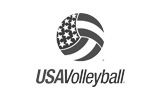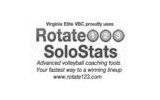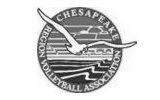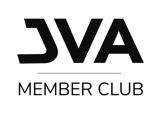Joining a Volleyball Club: Part 2- Evaluating a Club
October 14, 2019 Author: Dave Sears, 14's Assistant Coach
In the first part of the series we discussed the process for joining a volleyball club. This part of the series examines how to evaluate a club. In this part we try to give you a series of questions that you should consider and ask clubs you are looking at. At Virginia Elite we have seen families and their players select a club only to find out they did not really offer what they wanted. Unfortunately, per USAV rules, players cannot leave one club and join another club during the season. Therefore, it is critical to evaluate clubs closely before tryouts and when making your selection.
How to evaluate a club?
There are many factors to evaluate when deciding where your daughter will play.
• What level does your daughter want to play? There are many clubs playing at all different levels. Does your daughter want to play in college? Does she like the challenge of playing against teams from all across the country? Does she like volleyball and wants to be the best high school player she can be? Is she a multi-sport athlete where volleyball will not be her primary sport? These are questions you need to ask your daughter and will help determine if she should try for a travel team, a regional team or a house team. Talk to coaches at clinics to determine what clubs she should be looking at. Virginia Elite knows most of the clubs in the area and can help guide you.
• What is your daughter’s skill level and is it good enough to make the club you are looking at? As a family you need to objectively assess your daughter’s skill level. Going to prep clinics is a great way to see how your daughter matches up with others. At Virginia Elite, we will assess your daughter to see if she has the potential to make our teams. Not all clubs will do that.
• What position will my daughter play? This is a great question for clubs. We have seen tall athletes only play middle and no backrow. We have seen short athletes only play Libero and no front row. We have seen left handed athletes forced to be a setter. At Virginia Elite we train athletes in 2 positions. This does not mean they will play both positions in a tournament. But they are exposed to multiple positions between tournament play and practice. A tall player may play Pin and Middle. They need to see both. A Pin/Middle hitter needs to play back row. College coaches do not want to waste a substitution for a Pin hitter who cannot pass. We have seen coaches lamenting that their top libero was injured and that is why they did not win. At Virginia Elite, all our players can play defense and pass. If our libero goes down, we have 11 other players who can play that position to varying levels of success.
• My daughter plays multiple sports, is that allowed? Multi-sport athletes can continue to play multiple sports till about 15 at the Travel Club level. After that they need to focus only on volleyball, if they want to play in college. Playing multiple travel sports is too hard on the athlete with the time commitments and maintaining academics. We have seen athletes play high school sports, or on summer teams. Cross-training with other sports is good, to minimize repetitive motion injuries, however, it does require an athlete to manage their time and commitments.
• Is my daughter the number one player in position X? We have seen clubs tell parents and players that they are the number one in a position. Unfortunately, they have told three or four players they are interested in that they are number one for that position. When they get on the team they find out they are actually the fourth ranked player and will not see much court time. Sometimes players will be told the are on the team but will only play at regional tournaments and not the qualifiers. At Virginia Elite, while we do rank our players, we make sure everyone plays. Players will still have to earn court time, however everyone will play. Playing in a tournament vis-à-vis a practice is a totally different experience. Players need to be on the court to improve and to have fun.
• Can the family afford the club? Virginia Elite posts all the costs for our season up front. We have done that since the club came into existence 15 years ago. Many clubs only post some of their costs. What we have seen is that all clubs that play at the same level, will have about the same costs. Do not be fooled by the myth that Virginia Elite is the most expensive. Is it really? Look at what they really offer. Virginia Elite has, on their website, a cost comparison for 16s and two other local travel teams. Virginia Elite is not the most expensive the club. The challenge for you as a parent is that most clubs do not list all their fees. They may show only the base fee, but not travel, hotel, uniform, or coach’s stipends. You need to ask for a real cost break out.
• Should I allow my daughter to make the decision about what club to play for? Certainly, you want your daughter to have input into any decision your family makes. However, this decision is also about time commitment, financial and fit. At the younger age groups, we have seen players go play with ‘current’ friends and not at the level they should be playing at. Your daughter’s will make new friends. When a coach hears that ‘My daughter will make the decision.’ The first reaction from the coach is ‘I better have a backup player in mind as I have a 50-50 shot at getting this player.’
• How many returning players move to the next age group? Travel clubs want a high percentage of returning athletes to move up to the next level. If the club has selected well this occurs naturally. At Virginia Elite we train our athletes on the same core principles so that we do not have to start all over each year. At the younger age groups there is a higher turnover than the older age groups. There can be many reasons for a higher turnover. Players may realize that the time commitment is too much. Parents and athletes may find they love volleyball and they need to play at a better club that involves more training. The travel time to and from practice or the amount of time in the gym is a burden. They may realize the intensity of the program is not what they want to do. They may find the club is just not the right fit. At the older age groups, you will tend to find clubs looking for only a couple of players. This is why it is important to find a club and get into the program early. If you wait till later in your daughter’s career to move to a better travel team, there may be fewer positions available.
• How far is it to get to practice? Travel time, especially in the Washington DC metro area can be crazy at evening rush hour. Are there carpools available to cut down on your time investment? At Virginia Elite, we have many families carpooling. This is a lot easier due to our Academy style practice where 13s-15s and 16s-18s practice at the same time.
• Does the club emphasize winning at the expense of player’s development? Every club and coach desires to win every match. Volleyball outcomes are binary, you either won or lost. Some clubs put an emphasis on winning at all costs. Is that what is best for your daughter? What if you daughter has not grown into her body, or she is still relatively new to volleyball? If the club you choose has a win at all cost attitude, they may play only a small number of players. Training may be geared around those small number of players. These players will be the best at their age group. But how does a tall player get time in the back row? Are they taught how to play defense, or pass or serve? Does a player get to train and/or play multiple positions? We have seen this happen at the younger age groups. Players come to our team and have never been given the opportunity to play front row or back row or serve or play defense. How can these players improve? Virginia Elite looks at the whole team and trains the whole team. Look at the club’s published playing philosophy. Talk with returning families. Does the club do what they say they will do?
• How long has the club been in existence for? New volleyball clubs pop into existence all the time. There is a lot of work that goes into creating and maintaining a successful volleyball club. Acquiring gym space, finding quality coaches, registering for tournaments and organizations (USAV, AAU and JVA), equipment purchases and travel arrangements. Clubs that have been in existence longer are generally safer to be with and have less administrative issues. Virginia Elite has been in existence since 2005.
• Does the club have a Board of Directors? A Board of Directors helps to guide a club and make informed decisions which are based on data and not emotion. They provide a steading hand on the club. A Board of Directors examines costs and sets club fees. Virginia Elite has had a Board of Directors since its inception of 2005.
• Does the club have a recruiting director? If your daughter wants to play volleyball in college, it will be a fun and challenging road. At Virginia Elite, we have a designated recruiting coordinator whose job it is to talk with college coaches about our players. Our recruiting director helps promote the Virginia Elite brand to hundreds of college coaches. This helps make it easier for your daughter to get recruited as Virginia Elite athlete’s skill levels are well known. The recruiting coordinator has players set up profiles, call logs, and helps identify what type of school they want to go to (urban, rural, large, small, high academics, big school football team etc). Without a recruiting coordinator, athletes may miss opportunities to gain a valuable scholarship.
• What universities have former athlete’s been recruited to? At Virginia Elite, our recruiting success rate has been phenomenal. In fact, every athlete who has come through our program has been recruited play in college. We have placed our athletes in D1, D2, D3, and NAIA programs. It is all about the school’s fit for the athlete. Most have had scholarships to these colleges. These scholarships have been athletic, academic or a combination of both.
• Does the club have stated philosophies about playing time or the direction of the club? At Virginia Elite we are very transparent and we have our philosophies written down. We have seen athletes from other clubs who have never played back row, or served or played front row especially at the younger ages. This is a travesty for the athletes. We train the whole player in all aspects of volleyball. The main reason college coaches recruit Virginia Elite players is due to the skills training they receive.
• I really like club X, should I only go to their clinics or only tryout with them? This is another tough question to answer. You as a family really need to assess your daughter’s ability/potential and what level does she want to play at, Travel, Regional or House. There are no guaranteed spots on a team, however returners do have an advantage over new players in earning a spot as they are known entities. There is always the unknown factor of 2 twin 6’4” players showing up in the gym. Of course, a team will certainly look at those players. Clubs should give you ideas of where your daughter’s are in relation to others on the club. No club can give you an offer before tryouts start per CHRVA rules. This should give you an indication of whether or not you need to look at other clubs.
• Does the club have academy style practices? Academy style practice is unique to Virginia Elite. Academy style practice brings Virginia Elite 13s-15s and 16s-18s together to work on skills and techniques as a group. It benefits the younger age teams within their groups as they play against older athletes to give them more experience against tougher competition. It lets the older teams help out and gain leadership skills with the younger teams. Academy style is the main way Virginia Elite technically trains the club. Everyone is taught the same hitting, passing, serving, serve receive and blocking cues. This allows Virginia Elite to progress athletes from team to team and improving on their base skills each year. Academy style practice minimizes each coach teaching different techniques and forces a uniformity across the club. Academy allows all Virginia Elite coaches to get know your daughter. Instead of 3 coaches working with your daughter you have 20+ coaches. The team will focus on Academy style boot camp during the first month and a half of practice with 2 Academy practices and 1 team practice per week. After that it switches to two team practices and 1 Academy practice.
• How many coaches do you have per team? At many clubs they have only 1 or 2 coaches per team. At Virginia Elite we have 3 coaches per team. We feel it is important to have a high coach to player ratio. It allows better coaching on skills for individual players. A coach can pull a player from a drill for deep practice, without a drill stopping because the team has only one coach. In addition, Virginia Elite has a large number of floater coaches. These are coaches who are not assigned to a team but can help out with practices.
• My daughter is much more advanced than her age group. Should my daughter play up? Many parents want their daughters to play up an age group. Sometimes 2 age groups. Many clubs push younger aged athletes up to older teams and ‘stack’ the older teams. Virginia Elite believes an athlete should play with their age group. We have made exceptions on rare occasions to have athletes play up. For example, at the 14s age group we have had athletes play up, but they will stay at 14s for two years to catch up with their age group. We believe that every team should be the best in their age group and not just one or two teams. It allows players to be with their social peers. It allows the athlete to grow with their team. Finally, in their 18s year, they do not have recombine with their age group. This can lead to having to have an extra person(s) on the roster to accommodate a person(s) and ultimately reduces overall playing time for all players.
• Another club is offering my daughter the chance to play up, should we take that position? Many clubs will entice players to come to their club by allowing them to play up. There can be many reasons for this which you need to look into. Is the reason they are asking for athletes to play up because they cannot field enough players at that age group? Have they had a lot of players leave their club, possibly indicating issues with the coaching staff or the club in general. If they have a lot of kids play up, what happens when your daughter gets to 18s? Will there be a position for her at the upper age groups? We have seen players who have given their heart and soul to a club at the younger age groups only to be cut at the older age groups. At Virginia Elite, as mentioned before, we believe our athletes should play with their age groups. They will still be recruited to college.
• How many athletes does the club take per age group? We have seen clubs that take over 12 athletes for their teams. Virginia Elite believes that smaller teams are better for the athlete. This affords the coach to give more playing time for each player in tournaments. It allows the coaching staff to spend more time with each player in practice. Virginia Elite will have rosters of 12 for all age groups.
• What is your strength of schedule? Travel teams need to travel out of the CHRVA region to find the best competition and to allow players to be seen by college coaches playing against top talent. As you evaluate the schedule, teams may go to the same tournament but you need to ask what level will they play at? Will they be playing in Open Division or at lower divisions? At Virginia Elite, we go to major qualifiers and play in Open divisions. This gives our players the opportunity to play against the best clubs with the best players. It shows our players what they have to do to play at the highest levels.
• When conflicts/issues happen, does the club have a process to work with players? Virginia Elite has a process, which has been approved by the Board of Directors, which we follow for dealing with issues. If a player has an issue with playing time or some other matter, she should schedule time to meet with the coaching staff to discuss courses of actions. This should not be done at a volleyball tournament or during practice. Virginia Elite has a 24-hour rule for players and parents to not talk with coaches about areas of concern at volleyball tournaments. If the area of concern cannot be resolved by the player and coaches, it can be escalated to have the player, parents, coaches and a Board member try to resolve the issue.
The vast majority of issues stem from playing time. Here is Virginia Elite’s playing time policy.
Virginia Elite advocates a competitive playing time policy. Players will receive equal training opportunities at practice. The positional nature of volleyball combined with the complexity posed by attempting to balance the dual interests of distributing playing time fairly on the individual level and achieving the goals and objective of the team as a whole requires understanding that ‘fair’ playing time does not necessarily mean ‘equal’ playing time. To determine playing time, Players are evaluated on:
• Performance in practice and games
• Ability to execute skills in competition
• Ability to process and execute tactical instructions and strategies from the staff
• Athletic ability and improvement of skill level
• Attendance and level of commitment to the team
During a tournament, coaches are constantly adjusting and evaluating lineups, which means some players will receive more court time than others. Players are expected to understand and accept their role as defined by the coach and concede the collective performance of the team has priority.
• Does the club have a family culture? You will be spending a lot of time with parents and teammates. Does the club have the reputation as a family oriented club? Virginia Elite is known for having a family culture. The club has a Big Sister/Little Sister program whereby an older team member is paired with a younger aged player. They may exchange small goodie bags before a large tournament, or come to a local tournament to watch and support their little sister. Big Sisters have come to a tournament and taken over scoring details for their Little Sisters. When we go to the same tournament we will make signs cheering on their Big or Little sister. The Big Sister/Little Sister program starts off with a speed dating Q&A period at our club kickoff. The club sponsors a club wide overnight lock-in where we play games, create dance videos, run obstacle courses, play volleyball, eat lots of food and just hang together as a club. Finally, we have an end of season party where all the young ladies dress up for a catered dinner and awards ceremony.
• Should I go play with friends? This is a hard question. Many athletes, especially at the younger age groups, choose a club to play with their current friends. You need to guide your daughter on this topic. She will make new friends in a new club. She will still be friends with the players from other clubs. If your daughter is clearly better skilled or has a higher ceiling than her friends, and needs to play at a higher level, you need put her in a better program that has a proven track record of getting them into college volleyball programs. Virginia Elite wants to get a core group of athletes who progress from 13s to 18s. There will be attrition at the younger age groups for a variety of reasons, but as you get to the older age groups, there will be fewer and fewer spots available if you decide to play with better clubs at a later date.
• How does my daughter get noticed by a club? During the process of selecting athletes for a club, coaches may see hundreds of girls over a couple of months. Your daughter needs to stand out from other players.
• Introduce yourself to the coaching staff. Let them know who you are. You never know who your champion will be during discussions and the selection process.
• Be the first to jump in/volunteer for demonstrations. Coaches love to see initiative.
• Be willing to try new techniques. Even if you fail miserably at the technique, make the effort to try. Ask the coaching staff for guidance. Ask for extra reps at break or after practice. This shows you are willing to take chances and want to improve.
• Be heard in the gym. Call for the ball, communicate with your teammates.
• Cheer for teammates, even if you are competing for the same spot. Volleyball is a team sport. You will not be on the court all the time and you must be encouraging to others.
• After a practice, thank the coaching staff. Tell them what you liked.
• If a club is your first choice, let the head coach know. If a coach knows their club is the first choice, they will pay closer attention to the athlete. Telling a coach, they are in the top three does not engender a lot of attention.
• Wear bright colors to practice. A lot of times coaches will ask another coach for an opinion on a player and identify the athlete as ‘That was the kid in the neon green shirt.’
• Do not wear another club’s shirt to practice. You will get noticed, but it may not be in the way you want to. The first thing a coach thinks is ‘I guess we are not their first choice.’
• Show effort and enthusiasm. When going between stations, run do not walk. When it is time to shag the gym, don’t be talking to a friend or getting water, while everyone else is picking up volleyballs.
• Finally, volleyball is a fun sport. Have fun and enjoy having the opportunity to play volleyball. Coaches notice kids who are having fun playing volleyball!!










